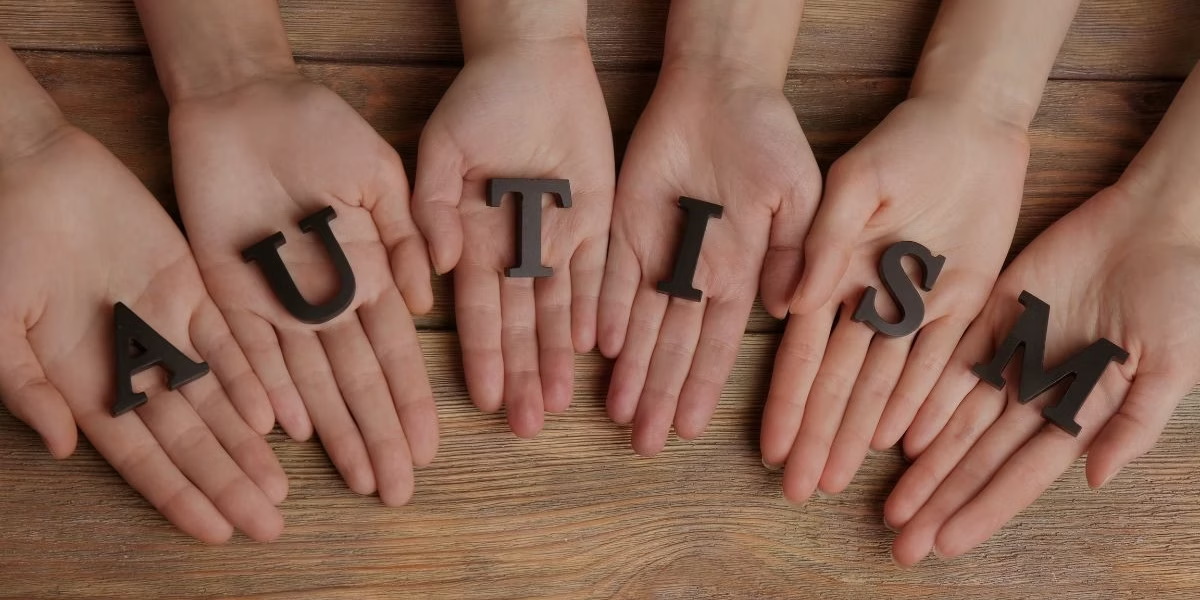
The Effects of Serious Motor Vehicle Accidents on Individuals with Autism: Understanding Trauma, Concussions, and Comorbid Conditions
Raising Awareness for World Autism Awareness Day
Every year, on April 2nd, the world observes World Autism Awareness Day to foster a deeper understanding of Autism Spectrum Disorder (ASD) and advocate for inclusivity. This day serves as a reminder that individuals with autism may face unique challenges, particularly in situations involving trauma and personal injury, such as serious motor vehicle accidents.
At Kendall Law Group, we are committed to protecting the rights of individuals with autism and ensuring they receive the medical care, legal support, and compensation they deserve after an accident. Motor vehicle crashes can have devastating effects, but for those on the autism spectrum, the consequences may be even more severe due to sensory sensitivities, communication difficulties, and comorbid medical conditions.
If you or a loved one with autism has suffered injuries in a Kansas City auto accident, it is important to understand their unique medical, psychological and legal needs.
How Serious Car Accidents Affect Individuals with Autism
Motor vehicle accidents can cause physical injuries, but they also result in emotional and psychological trauma, especially for individuals with autism. Sensory overload, changes in routine, and difficulty communicating pain can complicate both the immediate response and the recovery process.
Heightened Sensory Overload
Many individuals with autism experience sensory processing challenges, meaning they may be hypersensitive to light, sound, touch, and environmental changes. A serious car accident introduces a sudden influx of overwhelming stimuli, including:
- Loud crashes and screeching tires
- Flashing emergency vehicle lights
- Siren noises from ambulances or police cars
- Physical sensations of impact and injury
For someone with ASD, this can trigger extreme distress, confusion, or meltdowns. Unfortunately, first responders and medical personnel may not always understand how to communicate effectively in these situations, which can further escalate distress.
Difficulty Communicating Injuries and Needs
Many individuals with autism struggle with verbal communication, especially under stress. After an accident, they may have difficulty:
- Expressing where they are hurt
- Describing their pain levels
- Answering questions from medical professionals
Some may become nonverbal due to trauma, making it harder for doctors to accurately diagnose and treat injuries. Caregivers and family members must act as advocates, ensuring that the injured person receives a comprehensive medical evaluation.
Increased Risk of Post-Traumatic Stress Disorder (PTSD)
PTSD is a significant concern for individuals with autism, as they often struggle with anxiety and emotional regulation. The unpredictable nature of an auto accident can disrupt their sense of security, leading to long-term emotional and behavioral challenges.
Common signs of PTSD in individuals with autism include:
✅ Avoidance of cars, roads, or travel
✅ Regression in behaviors (e.g., needing a caregiver more than before)
✅ Increased sensory sensitivities
✅ Emotional distress, frequent meltdowns, or mood swings
✅ Difficulty sleeping or nightmares
Because verbal expression may be limited, caregivers should monitor changes in behavior after an accident.
Disruptions to Routine and Daily Life
Many individuals with autism thrive on structure and predictability. A car accident can disrupt their normal routine in multiple ways, including:
- Hospital stays and medical procedures
- Changes in caregivers or transportation methods
- New mobility challenges due to injuries
- Emotional stress from unfamiliar environments
These disruptions can cause increased anxiety, resistance to change, and difficulty adapting to new circumstances. Legal and medical teams should be aware of these factors when planning recovery and support.
Concussions and Traumatic Brain Injuries in Individuals with Autism
One of the most overlooked consequences of a motor vehicle accident is a concussion or traumatic brain injury (TBI). Individuals with autism may be at an even higher risk for long-term complications due to underlying neurological differences.
Recognizing Concussion Symptoms in Autism
Diagnosing a concussion in someone with autism can be difficult because many symptoms overlap with common ASD traits. However, caregivers and doctors should look for:
🚨 Increased sensitivity to light and sound
🚨 Frequent headaches or dizziness
🚨 Sudden mood swings or irritability
🚨 Difficulty focusing or memory problems
🚨 Changes in sleep patterns (insomnia or excessive fatigue)
Because individuals with autism may struggle to describe their pain, careful observation is essential for an accurate diagnosis and treatment plan.
Long-Term Effects of Concussions on Autism
A traumatic brain injury (TBI) can significantly affect executive function, sensory processing, and emotional regulation. Since many individuals with autism already face challenges in these areas, a concussion may:
- Intensify sensory sensitivities
- Cause delays in cognitive processing
- Lead to persistent headaches or chronic pain
- Trigger post-concussion syndrome (PCS), prolonging recovery
A neurological specialist familiar with autism should oversee post-concussion care to ensure a safe and effective recovery.
The Impact of Comorbid Ehlers-Danlos Syndrome (EDS) on Injury Severity
Many individuals with autism also have comorbid medical conditions, including Ehlers-Danlos Syndrome (EDS). This connective tissue disorder affects the body’s ability to support joints, skin, and blood vessels, making physical injuries from a car accident significantly worse.
How EDS Increases Injury Risks
People with Ehlers-Danlos Syndrome often experience:
- Hypermobile joints, prone to dislocation and sprains
- Fragile skin and blood vessels, leading to excessive bruising
- Chronic pain and slow healing, prolonging recovery
Even low-speed car accidents can cause severe joint injuries, whiplash, and internal bruising in individuals with EDS.
Legal Considerations for Individuals with Autism and EDS After an Auto Accident
Pursuing Compensation for Complex Medical Needs
Individuals with autism and EDS may require specialized medical care, long-term rehabilitation, and accommodations after a serious car accident. Compensation should cover:
- Neurological evaluations and treatment for concussions
- Physical therapy for joint and soft tissue injuries
- Specialized pain management and rehabilitation
- Behavioral therapy for PTSD and anxiety following the accident
Advocacy for Proper Medical Care
Many medical providers are unfamiliar with how autism and EDS affect injury recovery. Families must advocate for:
- Concussion screenings that consider autism-specific challenges
- EDS-informed treatment plans for joint and connective tissue injuries
- Sensory-friendly hospital environments when possible
- Comprehensive pain management strategies
A Kansas City auto accident attorney can help ensure that insurance companies and responsible parties recognize the full scope of injuries when seeking compensation.
Future Financial and Medical Security
For individuals with permanent injuries or chronic conditions exacerbated by an accident, securing a fair settlement is essential. Compensation can help provide:
- Medical treatments and surgeries
- In-home care and mobility support
- Specialized therapy for long-term recovery
- Lost wages or diminished earning capacity
Because EDS is a pre-existing condition, insurance companies may attempt to downplay injuries or argue that the accident was not the cause of new symptoms. However, under the law, individuals with pre-existing conditions have the right to seek compensation if an accident worsens their condition. Working with a Kansas City personal injury attorney ensures that insurance providers do not unfairly minimize the impact of an accident on someone with EDS.
Supporting a Loved One with Autism and EDS After a Car Accident
The recovery process after a serious auto accident can be overwhelming, but families can take steps to support their loved ones by:
- Creating a Predictable Recovery Plan – Maintaining structured routines to ease anxiety.
- Providing Sensory Comforts – Reducing light, sound, and touch triggers for better healing.
- Working with a Medical Team Familiar with Autism and EDS – Seeking specialists who understand these unique conditions.
- Consulting a Personal Injury Attorney – Ensuring that financial compensation covers long-term medical needs.
Seeking Legal Help After a Serious Auto Accident
Individuals with autism and comorbid conditions face unique challenges when recovering from a serious car accident. If you or a loved one has been injured due to another driver’s negligence, it is critical to seek legal representation that understands their specific medical, emotional, and financial needs.
At Kendall Law Group, we are dedicated to helping families in Kansas City and surrounding areas secure fair compensation for medical expenses, emotional distress, and long-term care.
📞 Contact Kendall Law Group for a free consultation at (816) 531-3100
Our experienced attorneys are here to protect your loved one’s rights and secure their future.






